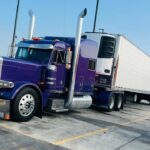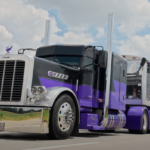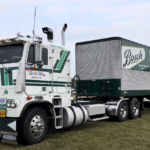Colorado has taken steps to promote the use of zero-emission vehicles by recently approving two new rules. The first rule encourages the availability of battery-electric or hydrogen fuel cell medium- and heavy-duty trucks in the state, starting from 2027. The second rule aims to have 40% of all medium- and heavy-duty trucks sold in Colorado run on zero-emission engines by 2035. The Colorado Air Quality Control Commission approved these rules on April 21, in an effort to reduce the state’s carbon footprint and promote sustainability.
Although Colorado recently approved new rules to promote the use of zero-emission vehicles, companies are not required to purchase them. Rather, the rules mandate that manufacturers must make these vehicles available for sale within Colorado. Therefore, while the state is encouraging the transition to zero-emission trucks, the ultimate decision to purchase them remains with the companies themselves.
According to the Air Quality Control Commission:
- “The Advanced Clean Trucks rule sets a sales standard for manufacturers to make more zero-emission trucks available in Colorado. It takes effect for trucks starting with model year 2027, and the sales standard percentage grows incrementally through model year 2035. This rule will only apply to manufacturers of medium- and heavy-duty trucks. It does not impact farming equipment or off-road construction equipment. The sales standard does not require Colorado businesses or consumers to purchase a zero-emission truck.”
The second rule approved by the commission says:
- “The Low NOx Truck rule sets more stringent air pollution emissions standards for heavy-duty vehicles, improves testing requirements for engines, and extends warranties. It takes effect for trucks starting with model year 2027. NOx refers to nitrogen oxides, which form ground-level ozone pollution when they react with other pollutants in heat and sunlight. The rule will lower the nitrogen oxide emissions standard for new vehicles by 90% compared to the current standard.”
“By encouraging more zero-emitting trucks on the road, we take another step towards realizing clean air for all Coloradans no matter where they live,” said Michael Ogletree, director of the Department of Public Health and Evironment’s Air Pollution Control Division.
During hearings on the new zero-emission vehicle rules in Colorado, the Colorado Motor Carriers Association expressed support for the transition to cleaner transportation options, but did not endorse the commission’s plan. The association cited concerns about the state’s infrastructure, stating that it may not be equipped to provide sufficient power to meet the charging requirements of battery-electric medium- and heavy-duty trucks. Despite these concerns, the state remains committed to promoting sustainable transportation and reducing carbon emissions.





